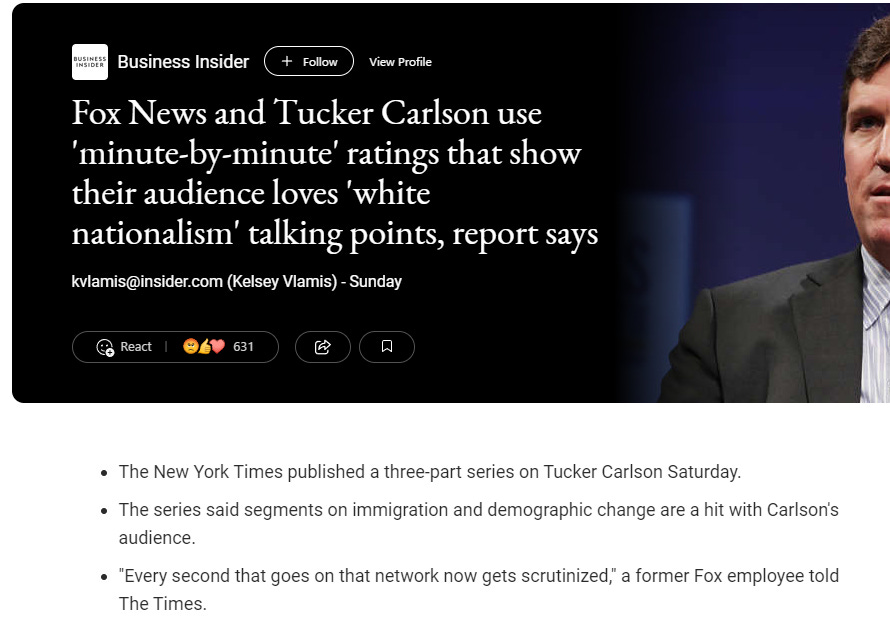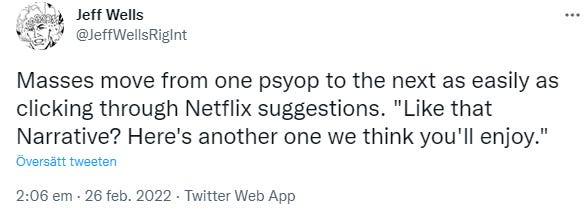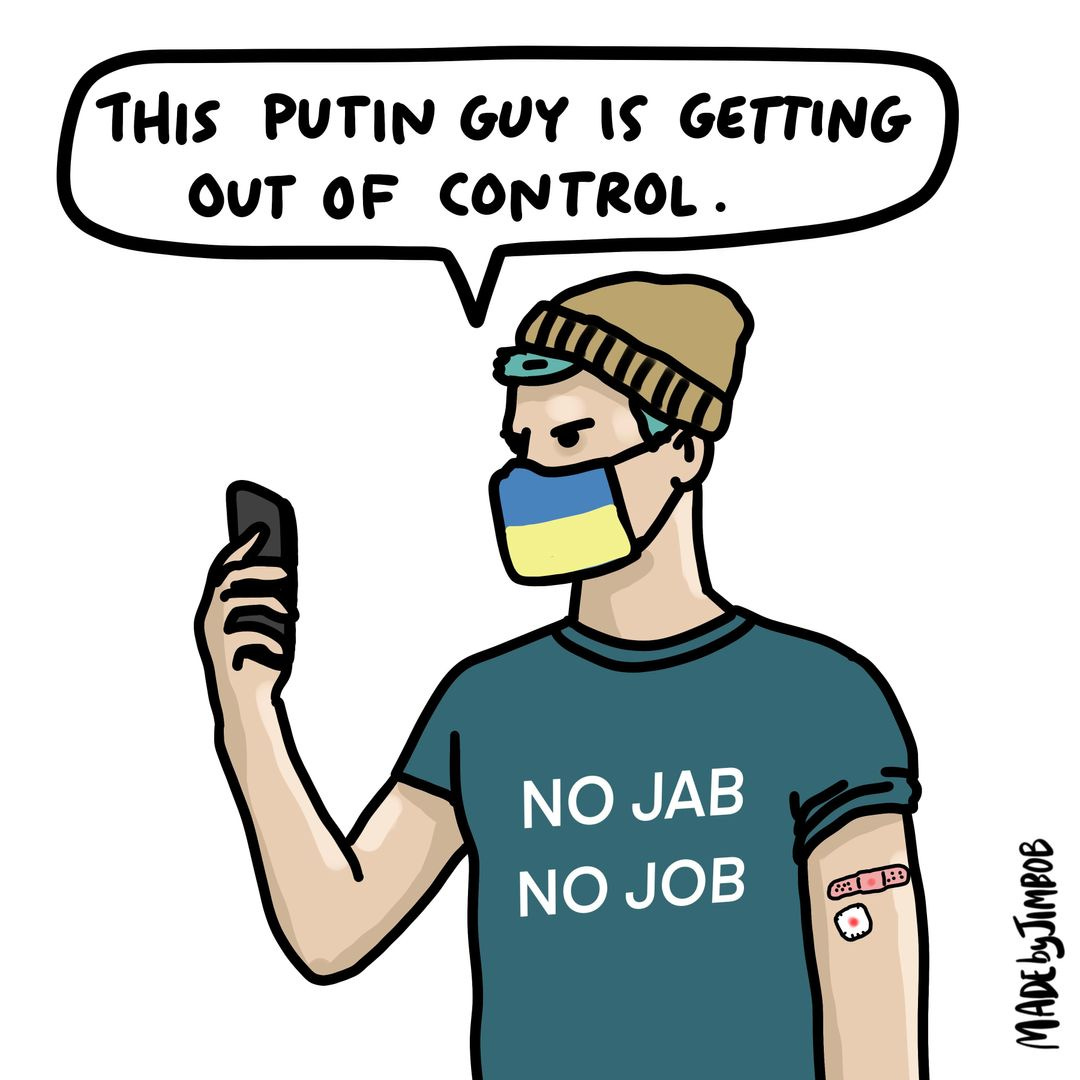The nudge matrix
The nudge matrix
How they're playing you like an accordion
Imagine that it’s 1947, and you’re an operative of a newly formed US intelligence agency superseding the OSS. Your current assignment is to subvert the government of a small yet regionally powerful nation state to favor US business interests. Add that this state largely exists outside of the sphere of Western cultural or economic influence.
To begin with, what tools do you have?
In reality, they’re not that many. You don’t have a US-aligned opposition party to funnel money into, and nothing akin to an established cultural hegemony here. No strong Disney presence to utilize. And both the opposition and the nationalist elite and its political institutions are suspicious of all sorts of outside influence, jealously guarding their indepencence, so all sorts of direct institutional support and funding above the board are precarious.
Neither do you own the media, which is a mix of private and public establishments, with little in the way of centralized narrative control rendering it costly and cumbersome to subvert.
The options available to you apart from the long game and direct military intervention are basically to send in the economic hit men for manipulative business contracts, and various sorts of bribes and threats. If that fails, you’ve got assassinations and the fomenting of unrest to stir up the institutional environment and hopefully get your guys in power. I.e. anyone who’s willing to compromise.
So it’s a bit tough. Lots of good old legwork for you, and few immediately fruitful options.
But turn the clock forward about three-quarters of a century? Man, it’s another world entirely.
Effective propaganda outside of your own sphere of influence used to be more or less impossible. Jacques Ellul’s seminal work on the subject conspicuously omits even the idea of meaningful hostile psyops on foreign soil, it’s role being exceedingly minimal. Propaganda is always internal at its core, a formation and disciplining of the state’s own subject population, which necessitates a whole host of ideological apparatuses working more or less in concert.
The thing is, there are no real local spheres of cultural and ideological influence anymore. Today, everything is basically under the dominion of Debord’s spectacle, beneath which the smallest units of division are more akin to hemispheres of only relative cultural and political hegemony. Quite Orwellian, yes. And in this homogenized context, propaganda, psyops and consent manufacturing generally function as internal phenomena, in spite of them originating on the other side of the globe.
Yet apart from these background factors, the integrated environment of digital information we now find ourselves in allows for a level of immediate and intimate influence that’s truly unique, and in practice almost inconceivable to most of us.
The contemporary foundations of influence
I can’t stress this enough. This is a new order of communications and narrative control, in which has emerged qualitatively different forms of active influence which build upon, yet massively supersede, the classical propaganda of modern mass society. And we’ve not only had very little time to research these developments, they’re also inherently opaque for a number of reasons, not least that the information-custodian algorithms are proprietary and generate ephemeral and unique results for the myriad end-users, results which cannot be reliably reproduced. Add to that the self-learning aspect and there’s a lot to untangle.
But I’m getting ahead of myself.
So as opposed to legacy mass media, we now have a framework of digital communications that’s really a game-changer. We’ve talked about this before, but didn’t really get into the details of how these processes work.
Let’s just reiterate the background, the force multipliers behind all of this. As I mentioned above, there really are no local cultures or ideological hegemons anymore. Everything’s been suffused by cultural and informational globalization in such a way that it has become meaningful to speak of one cohesive industrial civilization, where the hegemony of the major enclaves is neither absolute nor very deeply rooted. China is perhaps something of an exception here, but it still needs to be emphasized that the real cultural and political sovereign is Orlov’s technosphere as such. Not any particular state or polity.
What we have is rather a significant Western dominance within the framework of said technosphere - you can think of the situation as akin to how an influential elite can hold contingent power within the context of a stable and unchallenged hereditary monarchy wherein actual sovereignty resides.
In addition to this, we’ve got an almost total media consolidation (irrespective of the enclaves of relative hegemony). All media industries, globally, are controlled by a tiny number of organizations, constituting informational oligopolies. States such as Iran or China are indeed less penetrated by these, and offer their own ideological state apparatuses in response, yet their influence is much weaker and mainly regional.
Another significant background factor is that modern society lacks a dominant meta-narrative. Secularization has taken hold, and no comprehensive alternative to the cohesive and all-encompassing religious structures of meaning has been erected, and the influence of the 20th century ideologies has mostly withered away. As is well known, effective propaganda must always connect with the dominant myths of society, and when the fundamental pillars of meaning are vague and unstable, entirely new spaces of influence open up.
Back in the day, when we had separate civilizational units with their own comprehensive worldviews, such as the Christian and the Islamic ones, all the social structures and ideological constructs of these societies had to affirm the basic foundations of meaning. There was very little you could do outside of these comprehensive and very detailed cognitive maps of reality.
In comparison, the myths and fundamental narratives that actually remain today, are imprecise and extremely adaptable. We have the myth of something obscure called “democracy” which is predicated upon the freedom of the individual to seek gratification, and we have the myth of progress that relates to the process of more and more people being able to attain ever-higher levels of such gratification. There are no real ethics apart from a consumerist consequentialism, and the bland scientistic narratives of redemption relate to the first two positions.
Scientism as such could be considered a meta-narrative, of course, but in comparison to e.g. the Christian worldview of the medieval era, it’s almost entirely empty.
Scientism is basically just the story about institutional authority, and is chiefly negative in its metaphysics and description of reality. The core notion is that science, as arbiter of truth and reality, will tell you what the world is like, and whatever it tells you is always contingent and subject to change in accordance with the will of the authoritative institutions. To be sure, there exist stable foundations of a consensus reality within the framework of secular scientism, but the point is that authority is primary, and that the map of the cosmos we’re offered is vague and relatively capricious.
With regard to medieval religion, it was the other way around. The Catholic Church affirmed certain immutable truths about the cosmos and mankind. It acknowledged no authority to amend them, and maintained that all contingent truth and new discoveries could be harmonized in relation to these foundations based in the first principles of reason and divine revelation.
This is of course a double-edged sword. It can be leveraged by anyone against the religious hierarchies and the secular state in case they drift from the basic meta-narrative, yet will also lend itself to the consolidation of state power.
In contrast, the postmodern relativism in which we find ourselves exclusively undermines popular resistance. John Zerzan’s 1991 essay, “The Catastrophe of Postmodernism”, gives a useful account of the details, but in essence, there’s no immutable framework to leverage anymore.
In other words, the contemporary worldview-milieu works as a force multiplier in only one direction. It affords the entire advantage to those who wield authority and institutional power, since the myths and basic structures of meaning are subsumed under the latter.
The nudge matrix
So this is the general background. We’ve also talked a bit about the more proximate aspects of structural influence, such as the relative isolation of the individual in contemporary mass society; the disconnection from nature and extended real-life social networks; how schools and ISAs train us to be consumers and have us dependent on the mass media - yet these are century-old foundations of the entire institution of modern propaganda as such. What’s new is not only the intensification of these factors within the digital framework, but the exploitation of entirely new avenues of influence emerging in relation to the latter.
To begin with, we have an almost total popular absorption in the digital mediatic framework. There are almost no other avenues of information, and people are increasingly cut off from their immediate face-to-face interactions with other human beings. This especially holds true for the last two years, but it’s a decades-long process.
Hikikomori (Japanese: ひきこもり or 引きこもり, lit. "pulling inward, being confined"), also known as acute social withdrawal, is total withdrawal from society and seeking extreme degrees of social isolation and confinement. Hikikomori refers to both the phenomenon in general and the recluses themselves. Hikikomori have been described as loners or "modern-day hermits". Estimates suggest that half a million Japanese youths have become social recluses, as well as more than half a million middle-aged individuals (Wikipedia, Hikikomori).
Even though most peoeple maintain functional relationships in real life, the general tendency towards social disconnect has effects at the general mental makeup of society, and obstructs normal social intercourse, favouring spectacular media consumption. This further reduces influences which could counterbalance propaganda and psyops, over and above the general absence of stabilizing meta-narratives.
And this digital mediatic framework as such is truly a marvelous beast. We have unfathomable levels of mass data collection on every single interaction taking place online. It’s not just that ads for sunglasses can be tailored after your purchase history or that privacy is a non-starter. We have a system that allows detailed information on the discursive environment through soaking up the contents of every private interaction and every post online, enabling instant detection of trends and emergent social phenomena. Advertisers and consent technicians can be much more proactive since identification of significant discursive developments is so rapid, which of course also makes the manufacturing of trends infinitely easier.
“Every second that goes on that network now gets scrutinized” with regard to impact and viewer interactions. If this sort of analysis is trivial to a news channel like Fox, what do you think goes on at the interconnected social media giants with their mountains of data and highly advanced resources for analysis?
Since you’re able to perform real-time analysis of both dominant discursive trends as well as the impact of seeded stories, anyone with access to these tools will be able to spin influential narratives basically from whole cloth. And design them for maximum effectiveness.
So let’s say you want to make a certain topic trend, and support a particular perspective on the issue in question. Then an obvious go-to method is an AI bot network let loose on Twitter, preferably supported by a propaganda outfit akin to the 77th Brigade of the UK, as well as a bunch of assorted influencer accounts to maximize visibility. There are many ways to utilize these assets in synergy, but one simple method would be to just introduce the bot network in conversations connected to accounts with high visibility. There you can immediately push one particular narrative, and then indirectly support it with bot-likes. The actual humans can follow up in more creative ways, tailoring their responses with the aid of real-time analysis of the narrative impact rapidly identifying key points of attack, and you can pretty quickly get a ball of manufactured consensus rolling. Then pile on with retweets en masse by your influencer collaborators and you’re likely to do a good bit of damage.
Let’s call the above example “narrative manufacturing at the micro-level”.
If you then can harmonize something like this with the legacy media and its lumbering propaganda machine (the meso-level), the cumulative effect is going to be very difficult to counteract. This happened with covid, and it’s currently going on in relation to the Ukraine situation. Genuine narrative creation at this depth is likely slower, since you’re going to have to seed complex and rather comprehensive stories over time, but it’s always possible to just work with what’s on hand. Such as vintage 16th century hatred of Russia.
And it’s at this level of synergy that you’re able to recruit significant numbers of volunteer propagandists and rank-and-file thought police (often quite good people, sad to say), since now, you really activate the instinct to conform and submit to authority, which is going to hit people in the emotions. Lots of free support from the NGO sphere, churches condemning your preferred enemy image, opportunists trying to cash in on the current craze. This is of course affected by other factors, and the current situation of two years of fear porn, baited and switched with riots and war, will exacerbate this particular issue something awful.
I think synergies with the meso-level inevitably also must involve the macro-level, i.e. the level of myth or worldview. There’s simply no way to get a story dominant in the framework of the legacy mass media or in the overarching political discourse of a society without also some anchoring in the foundational narratives and the consensus reality. You need something like an appeal to the sacred authority of science; you need a threat against democracy or some sort of attack on sanctified rights to really get something off the ground at this level.
But in essence, there you have it.
Richard Thaler’s kindly “libertarian paternalism” (now there’s an oxymoron for you) at the structural core of the very communications framework of our social reality. Because there’s no way that the active engineering of discourse can at all be avoided here. Even the simplest filtering algorithms prioritizing information in people’s feeds will have massive effects at the aggregate level, and in the sort of societal order in which we find ourselves, where the manufacturing of consent is the basis of the economic and political processes as such, using these tools cannot possibly steer clear of circumscribing people’s choices for the purposes of social engineering.
Thaler’s idea that mass manipulation through our contemporary media structure can be both limited and tailored to “retain freedom of choice” is either stupendously naive or simply… Deceptive.
Getting back to our overworked intelligence operative, it’s evident that his line of work would perhaps not be quite so strenuous were he to find himself in AD 2022. In our gilded age, he doesn’t necessarily have to concern himself with wet jobs or astroturfing a student rebellion from the ground up just to avail himself of some political support through consensus cracking (as long as we’re moving outside of the few independent enclaves of relative ideological and cultural hegemony, where there are viable countermeasures to what’s been related above). He has so many force multipliers on hand that it’s almost a joke. While he might have to align with Reuters or AFP, after the basics are set, and something akin to an angle is found, in order to mobilize significant political support he really only needs to push a button.
In entirely different news, Sweden is now being fast-tracked into NATO, abandoning two centuries of policy of neutrality in armed conflicts. The kids in charge of this client state were flipped into an undisguised imperial asset at… Well, at the flick of a switch.
Smash the screen.





Comments
Post a Comment